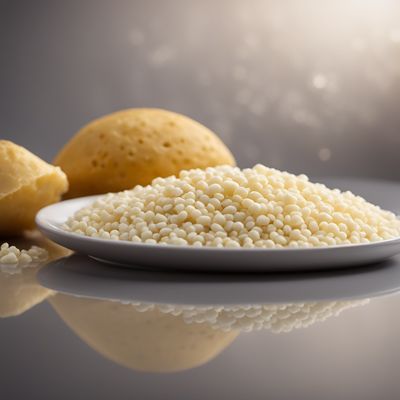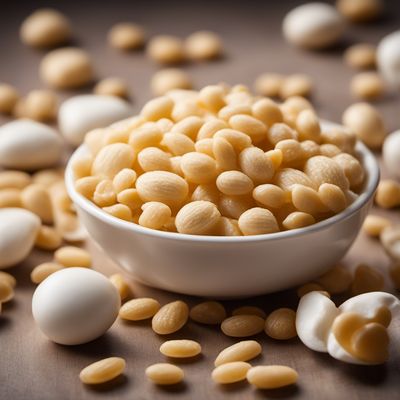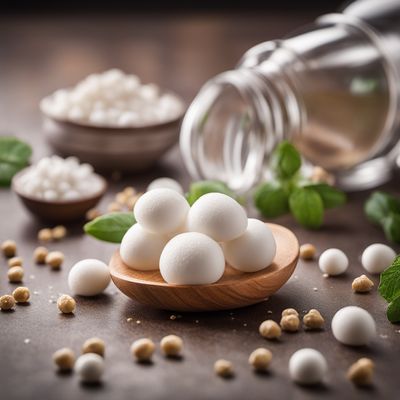
Ingredient
Sorbitol
Sweetener with a Twist
Sorbitol is a sugar alcohol derived from glucose and is widely used as a sweetening agent in sugar-free or reduced-sugar products. It has a sweet taste similar to sugar but with a slight cooling effect on the palate. Sorbitol is often used in chewing gums, candies, baked goods, and pharmaceutical formulations due to its ability to retain moisture and provide a pleasant mouthfeel.
Origins and history
Sorbitol was first discovered in the berries of the mountain ash tree in the 19th century. It is now commercially produced from corn syrup through a process called hydrogenation. Sorbitol has gained popularity as a sugar substitute due to its lower calorie content and its ability to provide sweetness without causing a significant increase in blood sugar levels.
Nutritional information
Sorbitol is a low-calorie sweetener that provides approximately 2.6 calories per gram, compared to 4 calories per gram of sugar. It is also lower on the glycemic index, making it a suitable option for individuals with diabetes or those following a low-sugar diet. However, excessive consumption of sorbitol may have a laxative effect in some individuals.
Allergens
May cause gastrointestinal discomfort or have a laxative effect in some individuals.
How to select
When purchasing sorbitol, look for products that are labeled as food-grade or suitable for consumption. Ensure that the packaging is intact and free from any signs of damage or tampering. It is advisable to buy sorbitol from reputable brands or suppliers to ensure quality and safety.
Storage recommendations
To maintain the freshness and quality of sorbitol, store it in a cool, dry place away from direct sunlight. Ensure that the container is tightly sealed to prevent moisture absorption. Proper storage will help prevent clumping and maintain its sweetening properties for an extended period.
How to produce
Sorbitol is commercially produced and not typically grown or produced by individuals at home.
Preparation tips
Sorbitol can be used as a sugar substitute in a variety of recipes, including baked goods, beverages, and confections. It is particularly useful in sugar-free or reduced-sugar desserts, such as cookies, cakes, and ice creams. When using sorbitol in baking, it is essential to adjust the recipe to account for its different properties compared to sugar. Additionally, sorbitol can be used to sweeten beverages like iced tea, lemonade, or cocktails.
Culinary uses
Sorbitol is commonly used in sugar-free chewing gums, candies, diabetic-friendly desserts, and pharmaceutical formulations. It is also utilized in the production of oral care products, such as toothpaste and mouthwash, due to its ability to enhance sweetness and provide a pleasant taste.
Availability
Sorbitol is widely available in most regions and can be found in grocery stores, health food stores, and online retailers. It is commonly used in food and beverage manufacturing, making it easily accessible to consumers.
More ingredients from this category

Erythritol
Natural Sugar Substitute

Lactitol
"The Sweet Secret: Exploring the Versatility of Lactitol"

Isomalt
The Sweet Secret: Isomalt

Other polyols
The Sweet Side of Sugar Substitutes: Exploring Other Polyols

Maltitol
The Sweet Secret: Maltitol

Mannitol
The Sweet Alcoholic Sugar

Xylitol
The Sweet Tooth's Ally